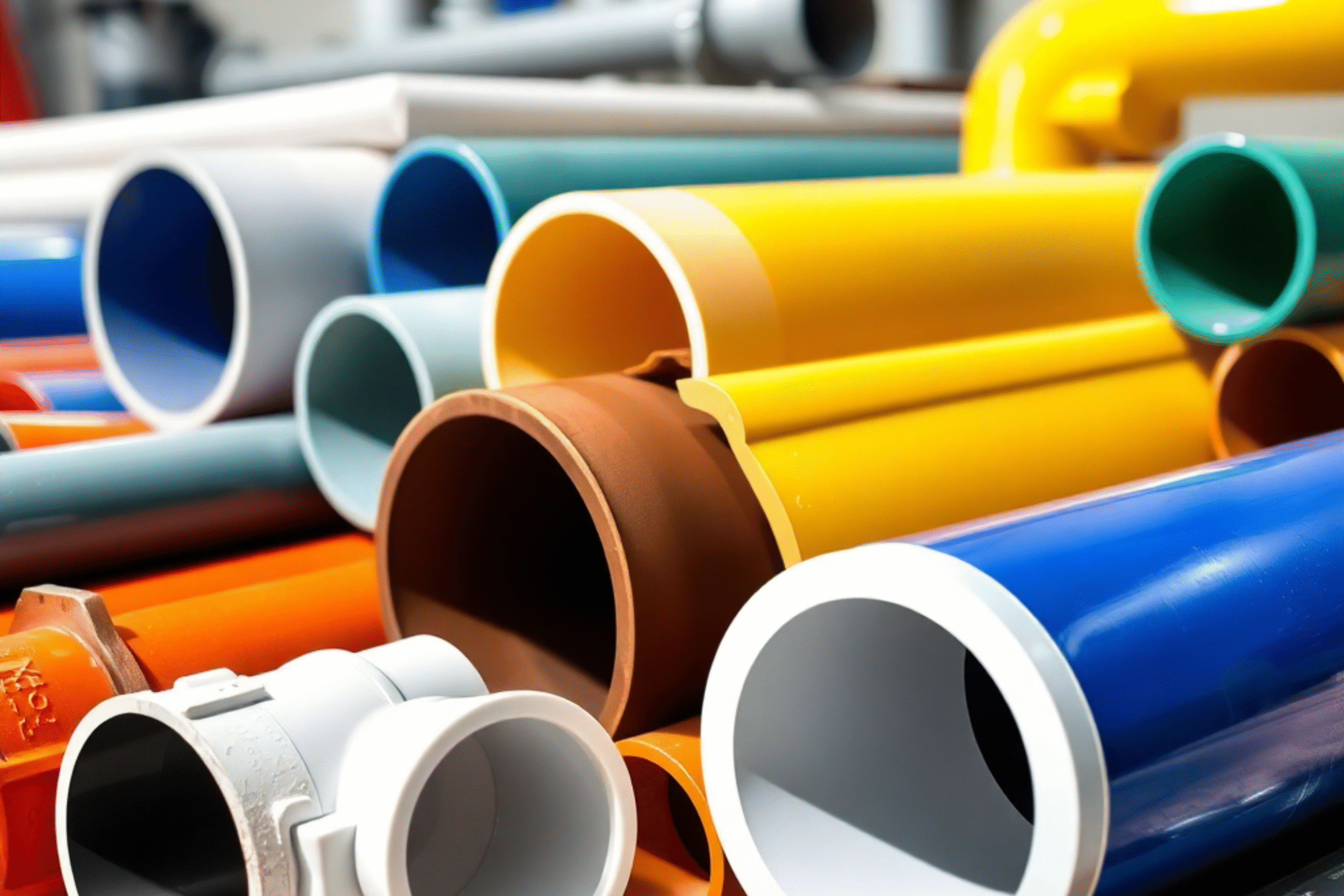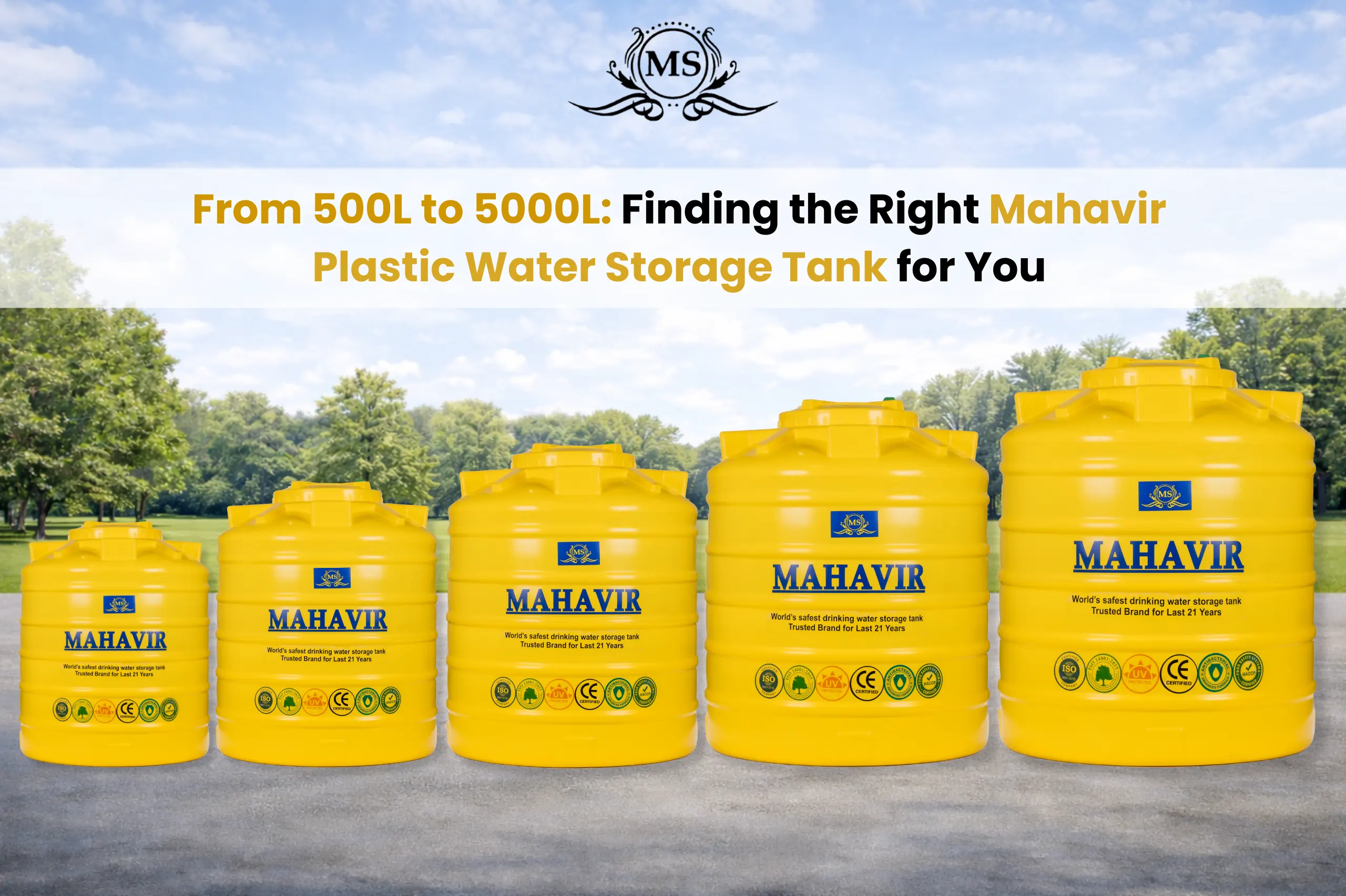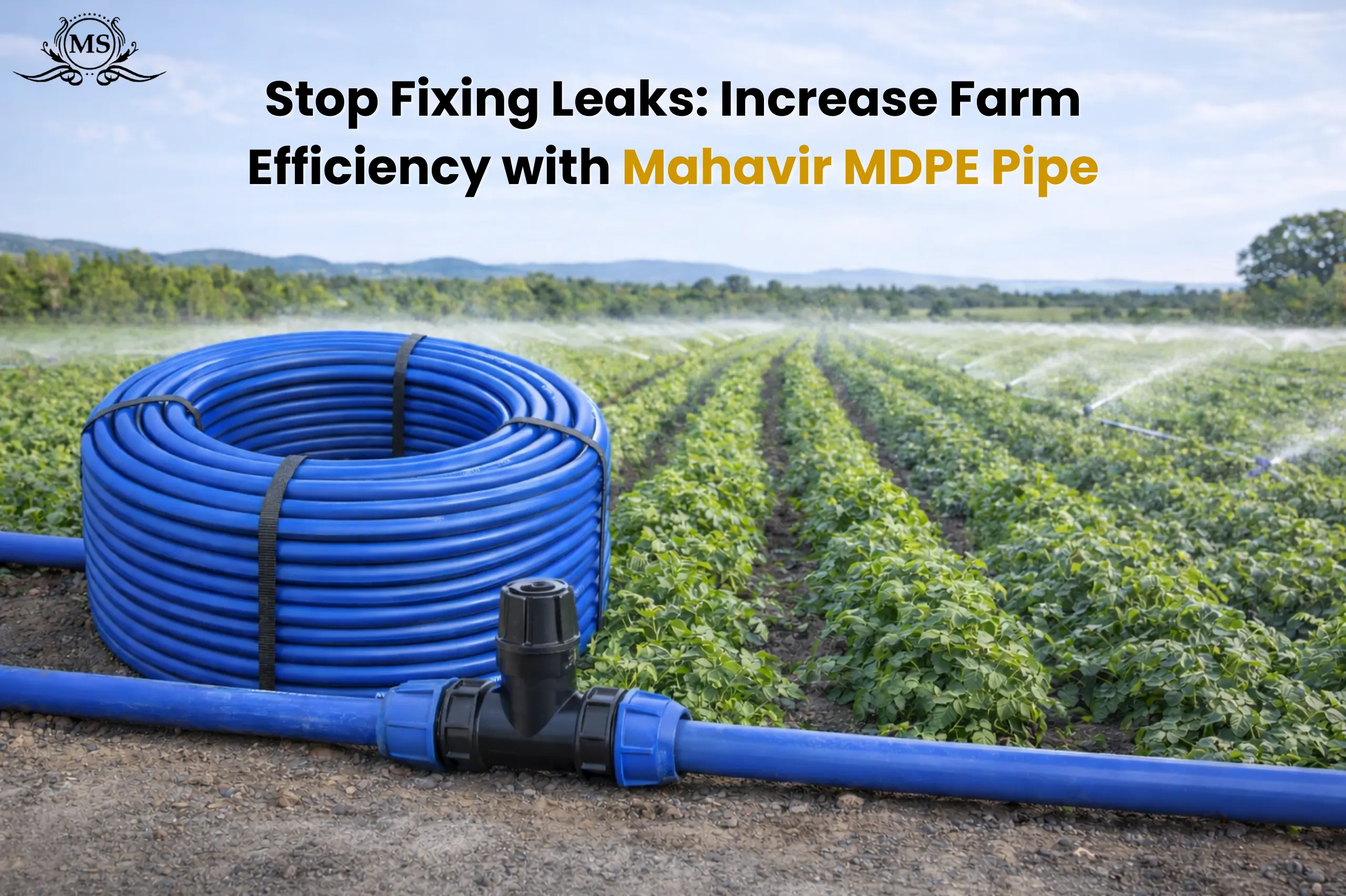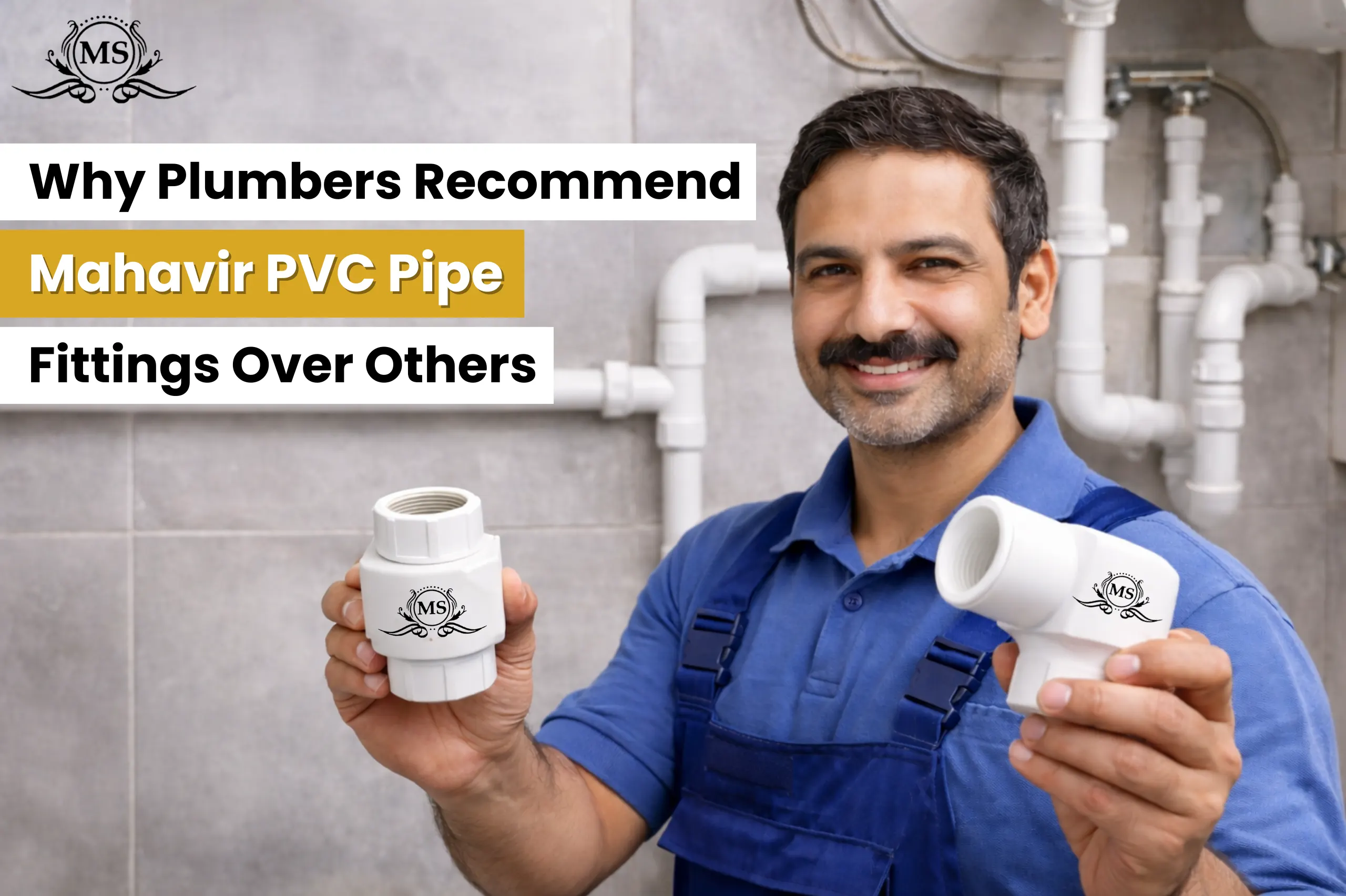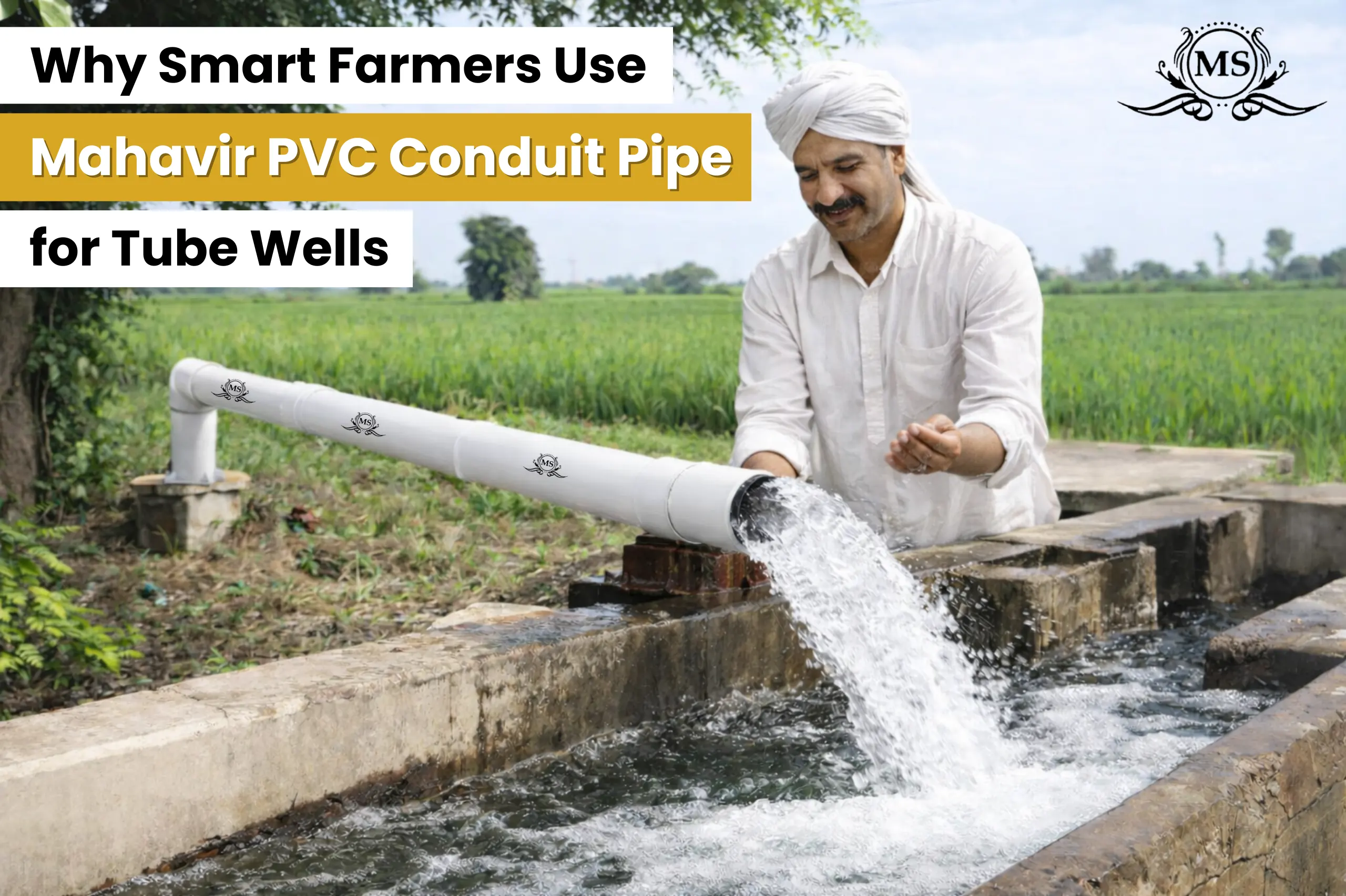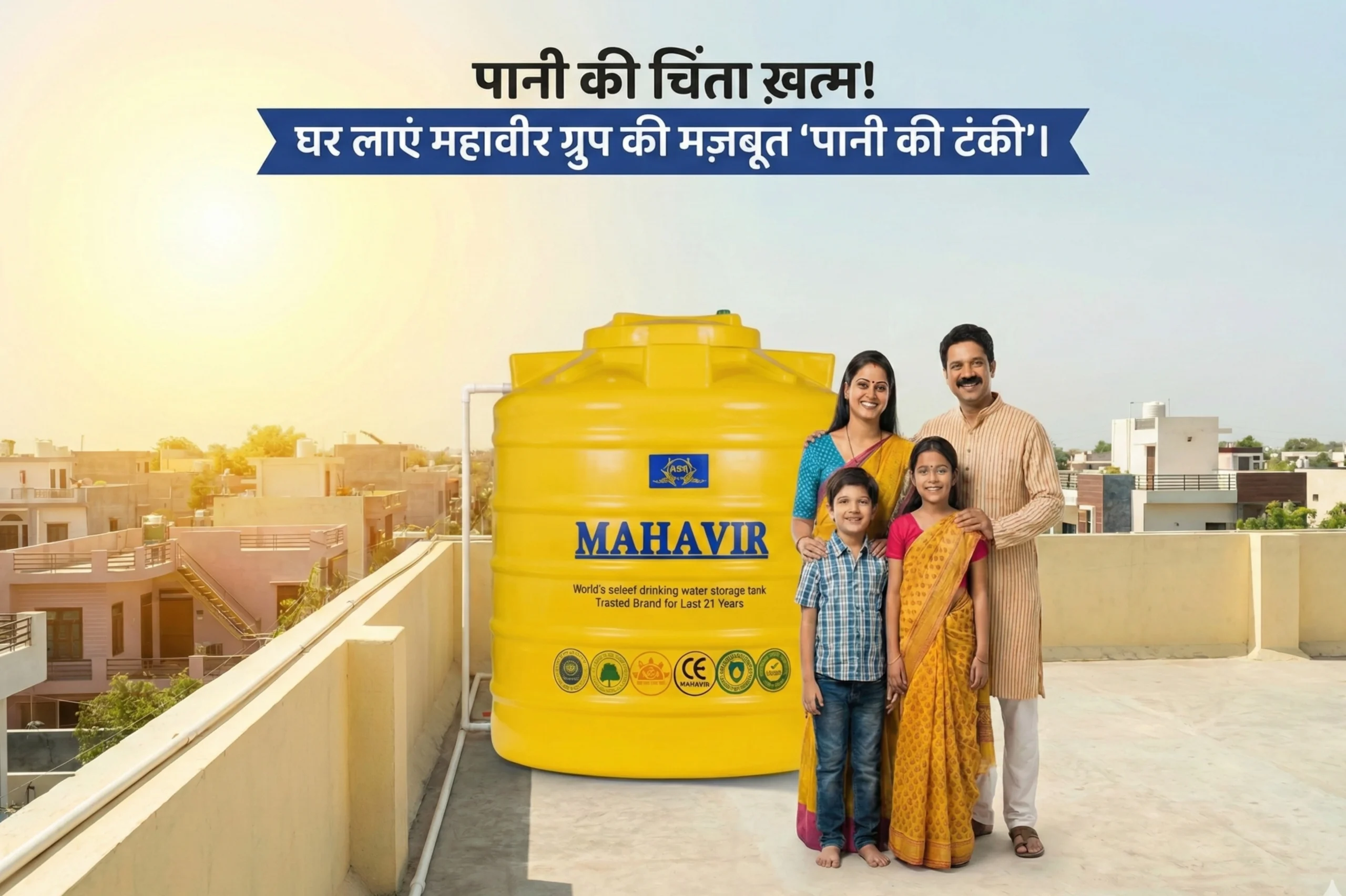Pipes in plumbing play a vital role. They should be sturdy, long-lasting, and cost-effective.
Several types of plumbing pipes are available.
Among the lot, HDPE and PVC pipes are the best. They are high-performance materials with durable plumbing solutions.
Top Five Types of Plumbing Pipes
Table of Contents
Toggle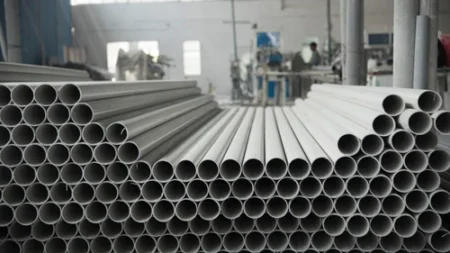
There are different plumbing pipes. They are used commonly In residential as well as commercial applications.
The following types of plumbing Pipes rank among the top five:
- COPPER PIPES: A common traditional pipe that has been in use for decades and is highly reliable. Additionally, they are long lasting. However, they are also expensive. Resistant to corrosion. However they are prone to damage from acidic water.
- GALVANIZED STEEL PIPES: They were once commonly used for almost all plumbing systems. Today, their use has declined. That’s because they are highly vulnerable to corrosion and rust. Not energy-efficient.
- PEX PIPES: They are flexible and can resist freezing. Easy to install. Not a good fit for high temperature water or outdoor use.
- CPVC (Chlorinated Polyvinyl Chloride) Pipes: Similar to PVC pipes. But chlorine is added to the pipe that help to enhance its heat resistance. Make it useful to be used for hot water distribution. But they are not robust enough in extreme temperatures in comparison to materials like copper.
- HDPE & PVC PIPES: HDPE pipes for industrial plumbing. Similarly, PVC pipes for residential plumbing. They are cost-effective and durable. Can resist corrosion.
HDPE Vs PVC Pipes
Durability and Strength
HDPE PIPES
- Known for their strength with durable plumbing solutions.
- Known to withstand the harsh rigors of environmental conditions.
- Highly resistant to physical impact,
Their high-density impact makes them an ideal choice for high-pressure applications. Like for instance, gas distribution and industrial plumbing systems.
PVC PIPES
- Known for their extreme durability.
HDPE pipes are when compared to HDPE pipes more stiff and rigid. They may not perform well in extreme conditions.
PVC pipes on the other hand are suitable for most residential plumbing. But they may under high-pressure or freezing conditions, crack or break down.
Resistance To Corrosion
Both HDPE and PVC pipes are corrosion-resistant pipes for plumbing,
Both unlike metal pipes like Copper or Galvanized Pipes do not over time rust or corrode. This makes them suitable as long-lasting plumbing systems.
HDPE pipes for industrial plumbing maintains an edge when it comes to resistance to acids, chemicals, and other corrosive substances’ that are commonly encountered in industrial settings.
PVC pipes can also resist chemicals. But they tend to degrade over tome. Especially when exposed to certain chemicals like Concentrated Acids, etc.
Flexibility Vs Rigidity
HDPE pipes
- Offer greater flexibility. This makes them suitable for applications that need adjusting around obstacles or require bending.
- Reduce the need for extra fittings or joints. They are easy to handle in tight spaces which help to lower installation costs.
PVC pipes
- Are rigid, making them easier to cut and install in straight lines.
- Are suitable for applications that require plumbing system to follow a specific path like residential plumbing. Their rigid structure also makes them suitable for underground installation as they are less likely to move their position.
Cost-effectiveness
Both HDPE and PVC pipes are good value for money as they are affordable plumbing pipe options. PVC pipes in particular are more budget-friendly.
They are also easy to manufacture and in many cases, available readily which helps to keep the cost low. This makes them a more ideal option for residential plumbing, especially smaller projects.
HDPE pipes for industrial plumbing,
- Is slightly on the higher side. This is due to their higher manufacturing costs, durability, and enhanced strength.
- Are a better option for larger-scale industrial projects. Although expensive, their long-term benefits far outweigh their initial investment.
Ease Of Installation
Both HDPE and PVC pipes are quite easy to install. However, HDPE offers greater flexibility which will make the installation process much easier in certain situations.
HDPE pipes can
- By using heat be connected together. This will eliminate the need for fittings and also ensure the system is leak-proof.
- Are ideal for industrial-scale plumbing systems that need long, uninterrupted runs.
PVC pipes are also easy to work with. They
- Are light in weight and need simpler joining method (done using PVC solvent cement).
- Are used commonly in residential plumbing applications. Like for instance in drains, water-supply lines, etc.
What Makes HDPE & PVC Pipes Best Choices For Plumbing?
Both have consistently been good options for residential and industrial applications.
The following factors tell why they’re the best options.
CORROSION RESISTANCE
Both are corrosion-resistant pipes for plumbing.
They do not rust. Nor do they corrode over time. They are ideal for applications that get exposed to moisture and other environmental factors. Like drainage, water distribution, and industrial plumbing systems.
DURABILITY AND LONGEVITY
In certain conditions, HDPE pipes can last for 50 plus years. This is due to their
- High-density structure
- Ability to resist chemical degradation making them durable.
Industrial plumbing systems often operate in challenging environments. The conditions can get harsh. HDPE pipes extreme durability and ability to withstand the rigors of harshness is a good option. They last long and are reliable.
PVC pipes are less durable. But they still can maintain an impressive lifespan of 20-40 years. When correctly installed and maintained, they can deliver high-performance plumbing materials. That is materials for residential water supply, drainage, and waste systems.
Versatility
Both are highly versatile. This makes them suitable for a wide array of applications, like
- Water supply systems. Both are capable of carrying potable water. They do not leach into the water harmful chemicals.
- Sewage and waste systems. Both resist chemicals and corrosion. This makes them suitable for waste disposal systems.
- Irrigation systems. They are both extremely durable. This allows them to resist weather conditions. That’s s why they are widely used for agricultural and irrigation purposes.
- Gas distribution. HDPE pipes are used frequently to safely transport in industrial applications natural gas and other fuels.
Cost-effectiveness
Both are generally cheaper. HDPE pipes for industrial plumbing offers excellent value for money. They are durable and last long. This reduces the need for frequent replacements or repairs. Overall, both score high in terms of cost and performance.
Eco-frendly Benefits
Both are sustainable plumbing materials. They are more eco-friendly than traditional copper of steel pipes.
HDPE is 100 percent recyclable. This reduces its environmental footprint when it becomes redundant and no longer in use. PVC on the other hand is also recyclable. However they are not as widely recycled as HDPE.
Conclusion
Which is better in HDPE VS PVC pipes?
There is no outright winner. Both are equally good and both offer durable plumbing solutions. It depends on when it comes to selection your specific plumbing needs.
HDPE pipes are
- Best suited for industrial plumbing OR any applications requiring high-pressure systems and superior long-lasting performance.
- Flexible, strong, and can resist chemicals.
PVC pipes are
- Best fit for residential plumbing applications.
- Easy to install.
- Durable enough for typical household water and drain systems.


